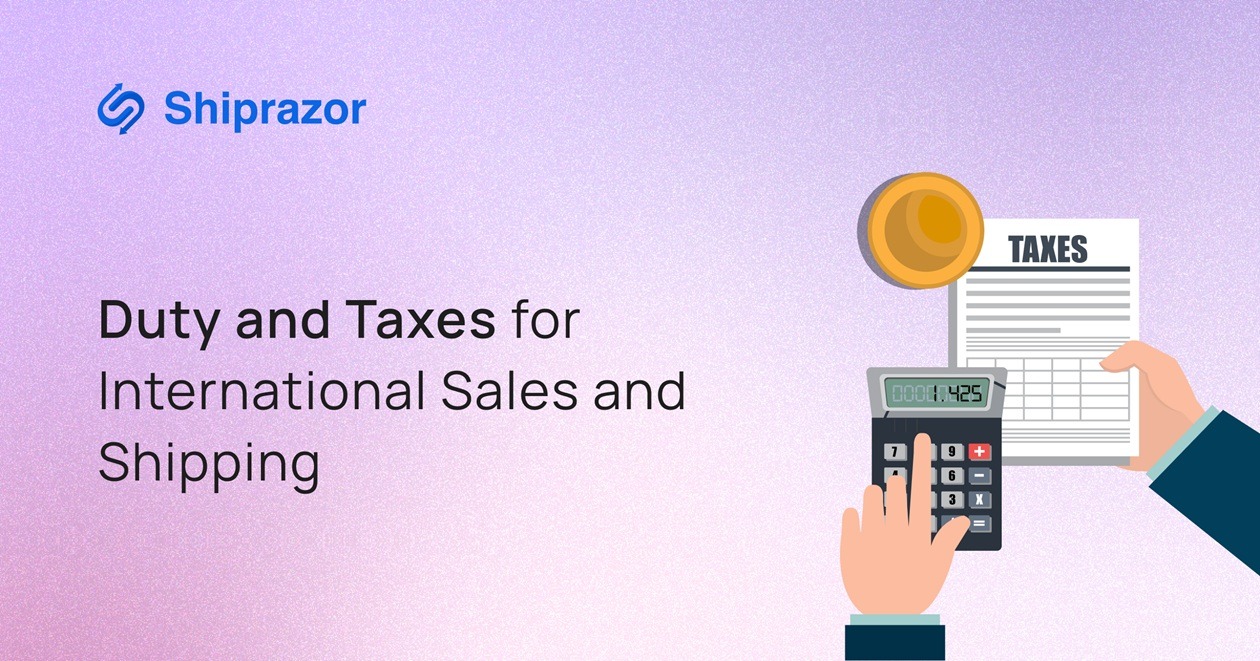With the expansion and introduction of global trade, more and more brands in the South African markets are tapping beyond the local borders, and they are trying to scale their operations in the global market. Cross-border trade has been able to offer opportunities to both the local tradesmen and large-scale retailers who are trying to increase the export of their products across various countries. With an increased number of opportunities, there is also a need to understand the duties, compliance, and taxes that come along with the trading of products across borders.
International trade can seem like a complicated process due to the inclusion of product restrictions, thresholds for different values, restrictions pertaining to different kinds of products, and the complicated documentation process. A customer and business might need a sufficient amount of time to get through understanding each of these variables. To avoid delays and inaccuracies, companies must ensure that they are able to cover each aspect in detail and that they are also able to help customers avoid unexpected costs.
Understanding Duties And Taxes For Global Trade
When it comes to global trade, duties and taxes are important for the protection of local industries, the regulation of trade, and the management of revenue. With the proper functioning of these areas, you would be able to enjoy the following benefits:
Accurate Prediction of Costs
By getting a cost estimate, you would be able to avoid disputes over penalties and storage fees
Customer Satisfaction
With accurate tax information and duty, the customers would not be left bewildered at the time of delivery.
Smooth Operations
A faster customs clearance would be ensured through proper documentation. Therefore, businesses need to ensure that international customers are able to understand all the potential costs associated with receiving goods from across borders. This can help ensure repeat purchases and also ensure strengthening of trust among the customers.
What is The Importance of Export Documentation in Trade?
To approve shipments, there is a heavy reliance on documentation by the regulatory authorities. With proper documentation in place, one can reduce the risks associated with inspections and delays.
The export documentation mainly covers the following requirements: commercial invoices, packing list, airway bill, and certificates of origin. All companies must provide these documents with utmost accuracy. They must ensure that there is no mismatch related to the product description, HS code, or value. All of these errors can potentially lead to a delay or rejection of the shipment.
What are HS Codes, And Why Are They Essential?
A Harmonised System (HS) Code helps in classifying every internationally shipped product. It is a code that is used globally in order to determine eligibility under trade agreements, import taxes, customs duties, restrictions, and permits. Therefore, it becomes essential to assign the right HS codes.
If the HS codes are not documented in the right manner, it can lead to seizure of goods, customs audits, and even unexpected costs. By investing in the right product classification tool, one can save a significant amount of time and effort
What Are The Potential Taxes And Duties That A Customer Might Face?
Import charges vary according to the destination when it comes to international shipping. The common fees that the customers might face include:
Excise Duty: It is applicable to certain food items, alcohol, luxury goods, etc.
GST/VAT: This is a consumption tax that is applicable to the total value of your shipment.
Customs Duty: It is primarily determined by the HS code and the product type.
Environmental Fee: It is fairly common in the EU regions. It is applicable to the packaging, sustainability compliance, and electronics.
Anti-Dumping Duties: When the goods are believed to be priced below their market value, this duty is applicable.
The customers should get a thorough understanding of each of these duties and taxes if they wish to get an internationally shipped product.
Understanding DDU and DDP: Which Is The Best Option for South-African Exporters?
The businesses must decide whether the duties and taxes will be paid by the buyers or the sellers. It is considered to be one of the most important logistics decisions.
Delivery Duty Unpaid
It means that the buyer would be required to cover all the duties and taxes at the time of delivery. This also means reduced responsibility for the sellers.
Delivery Duty Paid
It means that the duties, taxes, and customs clearance is covered by the seller. It would consequently ensure a predictable and seamless experience for the buyers. This also requires the sellers to fully understand the rules and regulations of the destination country.
Therefore, many businesses and exporters in South Africa have chosen to opt for a mixed model rather than a singular approach. It is advisable to use the DDU model for regions that are hard to cover logistically and the DDP model for high-value markets.
What Are Some Common Challenges and How To Avoid Them?
Regulatory issues and incomplete paperwork can cause delays related to customs. There might also be restrictions on different destinations. They might impose their own safety guidelines, unique labeling, and certification rules. This can cause increasing dissatisfaction among the customers.
Apart from these, some SMEs might also find it difficult to export goods from South Africa due to international shipping. This can be resolved with better price negotiation and package optimisation. To improve their delivery performance, businesses and exporters need to have a detailed understanding of these variables. The currency in South Africa keeps fluctuating, which can affect the competitiveness, pricing, and profitability.
If the duties and taxes are effectively communicated to the users, the customers will get a seamless user experience. They also need to document and handle the customs holds and the abandoned parcels. By strengthening all these processes, the companies will be able to leave their mark on the global market.
What Does The Future Look Like?
If South African businesses want to expand at par with other companies in the domain of international trade, they need to master all the rules and regulations that are included in the process of international shipping. If they keep the customs compliance in its proper place, they will be able to grow at an exponential rate across every industry.
There is an increasing need for exporters to build the required trust and reliability among customers. It is not just limited to the exercise of avoiding error when it comes to complying with taxes and duties. The next wave of global retail will surely make its way through South Africa with the rightful and effective compliance of these processes.

